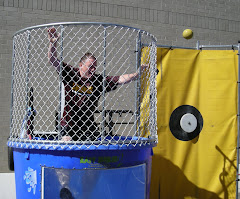In his recent education speech, President Obama asked the states to raise their standards and develop “assessments that don’t simply measure whether students can fill in a bubble on a test.” With the No Child Left Behind law up for reauthorization this year, the onus is now on lawmakers and educators to find a way to maintain accountability while mitigating the current tendency to reduce schooling to a joyless grind of practice exams and empty instruction in “reading strategies.”
Before we throw away bubble tests, though, we should institute a relatively simple change that would lessen the worst effects of the test-prep culture and improve education in the bargain.
These much maligned, fill-in-the-bubble reading tests are technically among the most reliable and valid tests available. The problem is that the reading passages used in these tests are random. They are not aligned with explicit grade-by-grade content standards. Children are asked to read and then answer multiple-choice questions about such topics as taking a hike in the Appalachians even though they’ve never left the sidewalks of New York, nor studied the Appalachians in school.
Teachers can’t prepare for the content of the tests and so they substitute practice exams and countless hours of instruction in comprehension strategies like “finding the main idea.” Yet despite this intensive test preparation, reading scores have paradoxically stagnated or declined in the later grades.
This is because the schools have imagined that reading is merely a “skill” that can be transferred from one passage to another, and that reading scores can be raised by having young students endlessly practice strategies on trivial stories. Tragic amounts of time have been wasted that could have been devoted to enhancing knowledge and vocabulary, which would actually raise reading comprehension scores.
To read the entire article, click here:
http://www.nytimes.com/2009/03/23/opinion/23hirsch.html?_r=1&ref=opinion
E. D. Hirsch Jr. is the author of “The Knowledge Deficit: Closing the Shocking Education Gap for American Children.”
Thanks Mark for sharing this with me!



















1 comment:
Totally with you on this need for content in the reading comprehension equation. I posted on that topic at my How to Teach a Novel blog (http://howtoteachanovel.blogspot.com/2010/04/connection-between-content-and-reading.html), mentioning that Daniel T. Willingham is also a strong advocate of the need for prior knowledge. Great blog! Keep it up!
Post a Comment